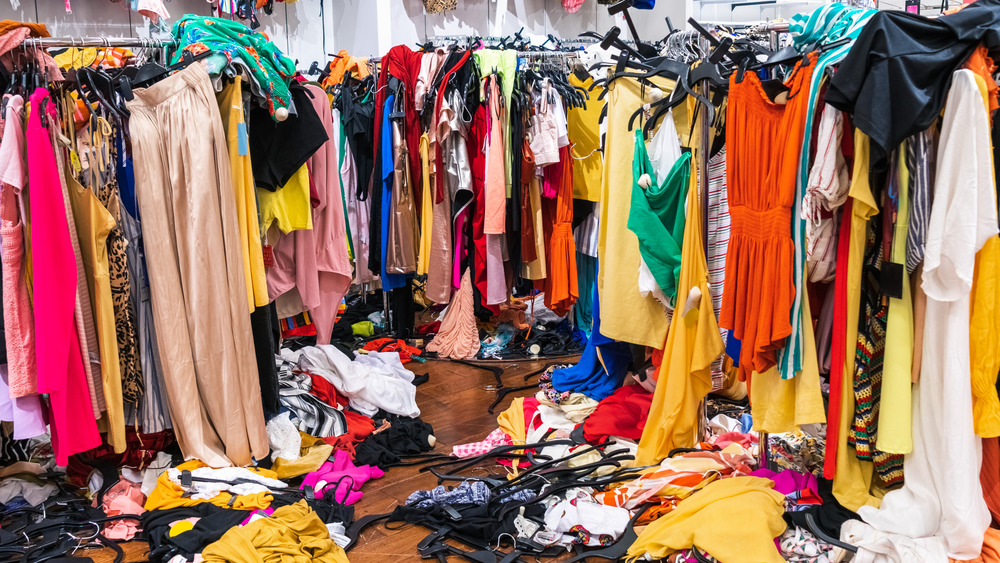The Real Reason Boohoo Clothes Are So Cheap
The pandemic — along with mounting social pressures — has revealed the fragility, and sometimes malpractice, of various supply chains. When it comes to fast fashion and its suppliers, it appears as if their day has come. Those $5 crop tops and $8 swimsuits from British fashion retailer, Boohoo, come at a higher cost than buyers may realize — a much more human cost. In July 2020, The New York Times reported that Boohoo came under fire when the truth behind its cheap products came to light.
Since its inception in 2006, the brand has continued to dominate with constant social media trends and a growing consumer base willing to buy trendy products that will most likely be worn once. Today, Boohoo owns other well-known labels like PrettyLittleThing, Nasty Gal, and MissPap. However, the cheap price tag comes at a cost to the workers and their work conditions. Dubbed the leader of the "ultra fast fashion" movement, Boohoo keeps its suppliers close to home in order to meet the rapidly growing demand for cheap clothing.
In the summer of 2020, the extent of this malpractice made its way to the headlines. The Times reports that the workers in a Leicester factory making pieces for Boohoo were paid only half of the country's minimum wage. Plus, the investigation also found that the employees had inadequate equipment to be working throughout the COVID-19 pandemic.
Fast fashion outlets are costing many workers unseen issues
What was once one of the most expensive items in one's home has now been reduced to a quick way to make some money. Fast fashion quickly sent high-end retailers into a tailspin, with more consumers opting for the cheaper version of their favorite items.
According to The Guardian, these cheap garments head to the trash can after only five weeks, pilling into landfills by the droves. Sass Brown, a lecturer at the Manchester Fashion Institute, tells the outlet, "The hidden price tag is the cost people in the supply chain and the environment itself pays. The price is just too good to be true."
In addition to the low wages of workers abroad, the employees of factories in the U.K. also receive less-than-livable paychecks. Further, on top of violating labor laws, Boohoo clothes are often made of microplastics, The Guardian reports. After years of being tossed in landfills, these tiny particles from cheap clothing make up approximately 35 percent of microplastics in the ocean.
A widespread issue that implicates everything from environmental protection to human rights, fast fashion and ultra fast fashion have quickly become societal problems that consumers have to face. When you purchase cheap clothing, the people behind the scenes often pay the price.

